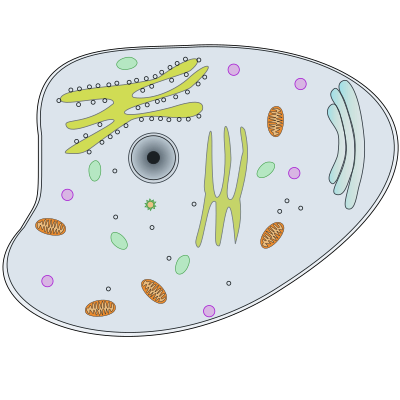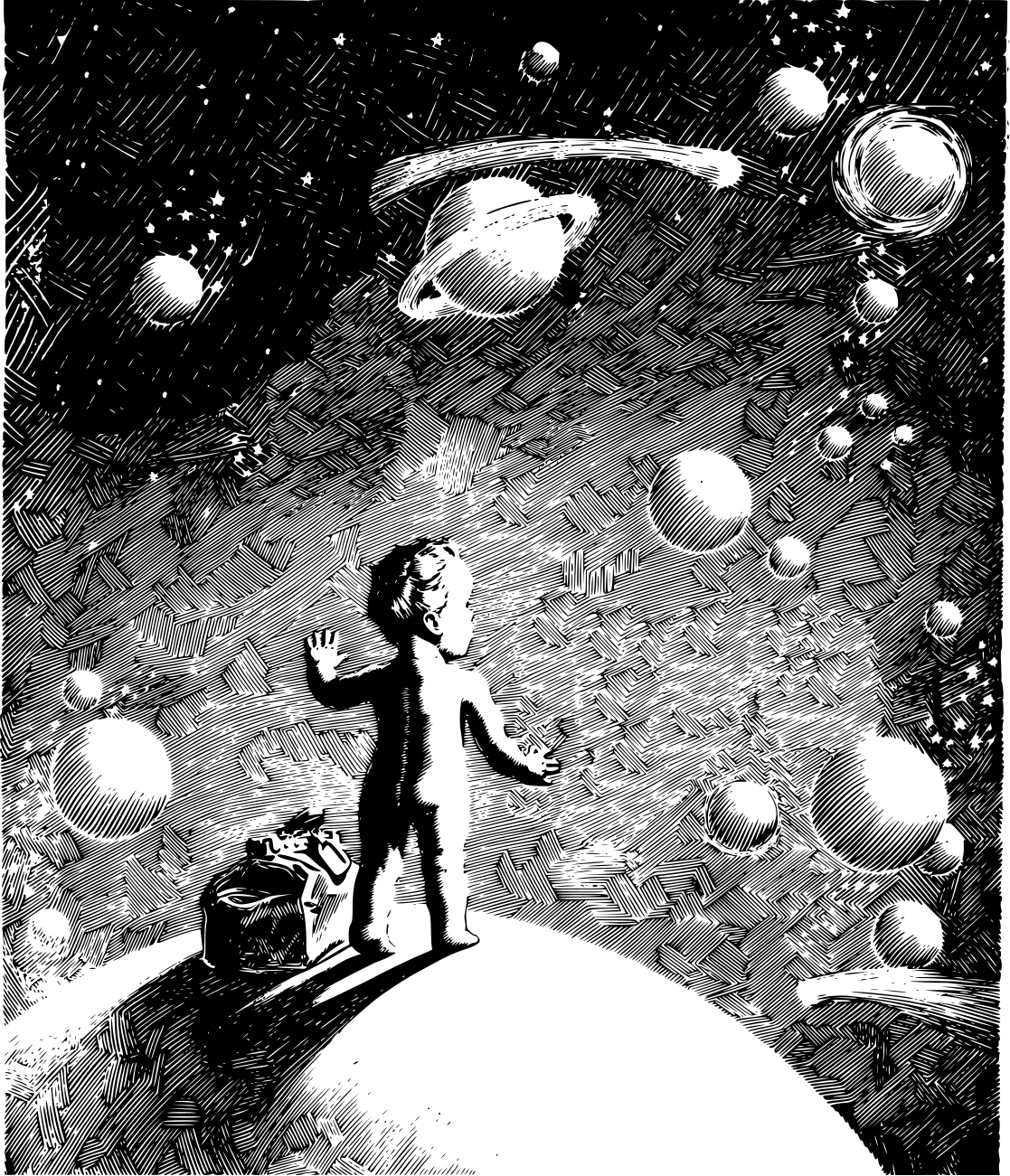Why aren’t we Gods, yet? The list of reasons I’m not a God is pretty long, but I want to approach it from a physical perspective rather than a moral one. To do so, I want to explain to you a bit about Robin Hanson’s Great Filter argument. In it he asks, what are our chances of ever leaving this planet and colonizing the stars? You see, it’s a pretty simple extrapolation that any civilization that manages to develop the technologies to travel fast enough, live long enough, and modify their environment enough to be able to colonize other worlds will do just that, if there isn’t something else stopping them. A civilization with the ability to spread out this much is likely to grow exponentially and leave a lot of evidence. It’s also pretty clear that we can’t find any evidence of other colonists in our universe. This is Robin Hanson’s key data point–the Great Silence. Those of us who believe that God communicates with us might have reason to doubt the Great Silence, as might others for other reasons, but let’s concede this data point and see what we can learn. What does it take for us to be able to colonize the universe? Hanson answers this question by stepping back in history. Not only will we have to make technological advances in the future, a whole bunch of things have to have already happened to get us where we are.
The Great Filter
Consider our best-guess evolutionary path to an explosion which leads to visible colonization of most of the visible universe:
- The right star system (including organics)
- Reproductive something (e.g. RNA)
- Simple (prokaryotic) single-cell life
- Complex (archaeatic & eukaryotic) single-cell life
- Sexual reproduction
- Multi-cell life
- Tool-using animals with big brains
- Where we are now
- Colonization explosion
If any one of these steps doesn’t work out, then we’re not going to reach the stars. Let me go through the steps a second time:

It has been claimed that the planet we live on, so perfectly suited to life, is immensely improbable. Ongoing scientific research is finding that planets like ours aren’t nearly as rare as once thought. There are probably billions of them in our observable universe. In addition, organic molecules needed to make life like us are all over the place, even in forbidding regions of space. Is the right kind of star system for life probable or improbable?
For more information on possible, life-friendly solar systems, you might read about projects like the Kepler telescope.

For a time, modern biologists and chemists believed that organic molecules could only be made by living organisms. This has long since been disproven, and we now regularly make medicines and other organic molecules from non-living chemicals. In fact, we know of numerous ways to make DNA, RNA, proteins, and fats from inorganic matter, and have several hypotheses of how these might have come together on the early earth. Are molecules that can store and duplicate information probable or improbable?
If you want to watch some cool videos about how this might have happened, check out this site exploringorigins.org. I love these videos, and show them to lots of my chemistry classes. It was probably a blessing I didn’t get into this kind of research seven years ago, but origin of life research has not heard the last of me (at least in my dreams)!

Once a simple, self-replicating molecular system forms, like some RNA that copies itself, some people argue that it’s just a short step to self-sustaining life in the form of simple bacteria. Is cellular life probable or improbable?

You may have heard of the theories that mitochondria and chloroplasts—the things that give animal and plant cells energy—were once independent little bacteria that were incorporated into bigger bacteria in a mutually beneficial, symbiotic relationship. Some people would argue that this advance is likely, given the environmental pressures experienced by, and the abilities of, simple self-replicating systems. Is this step from simple to complex cells probable or improbable?

This picture is a bit misleading, since sexual reproduction first arose among single celled organisms, but the question is still valid. Is sexual reproduction an inevitability once complex cells exist, or could life have just stopped with simpler forms of reproduction and done just fine? Did life have to move on? Is sex probable or improbable?

Single celled organisms ruled the world for billions of years. Is there a reason life had to progress to multi-cellular organisms, or did we just get lucky? Is multicellular life probable or improbable?
By this point you may have suspicions that my personal interests center on stages 1-3. I’m inclined to think that 4-8 are pretty easy, but I have no real proof for it, and wouldn’t be at all disturbed to be convinced otherwise. Now here are 7-9:

Most organisms on this planet don’t use tools. Among those that do, most use only very simple tools. Was the evolution of prehumans, or something like us, a given, or a fortunate accident? Are big-brained, tool using beings probable or improbable?

Society has grown into something really amazing. We grow food, write books, build skyscrapers, perform surgeries, invent new materials, and travel to the moon. Why didn’t we stay as tribal, hunter-gatherers? Is modern society probable or improbable?

At least a few people think we are on the verge of real space travel. Technologies to lengthen lifespans, harvest energy out in space, terraform planets, and travel at immense speeds are just around the corner. If they are right, all we have to do to reach the stars is keep from wiping ourselves out in the meantime. Are we ever going to get out and explore the stars? Will we colonize new worlds? Is explosive human expansion probable or improbable?
You might say that stage 9 really includes a lot of stuff that still needs to happen. I would agree, but it doesn’t matter for the argument. If we aren’t already past the hard part, then we probably won’t reach stage 9. Here’s how Hanson sums it up:
While all of these stories are at least minimally plausible, our main data point implies that at least one of these plausible stories is wrong—one or more of these steps is much more improbable than it otherwise looks. If it is one of our past steps, such as the development of single-cell life, then we shouldn’t expect to see such independently evolved life anywhere within billions of light years from us. But if it is a step between here and a choice to explode that is very improbable, we should fear for our future. At the very least, our potential would have to be much less than it seems. Optimism (as defined here) regarding our future is directly pitted against optimism regarding the ease of previous evolutionary steps. To the extent those successes were easy, our future failure to explode is almost certain.
Hanson also points out the importance of what we believe regarding the stages of the Great Filter. At this point it also becomes important what we believe regarding the Great Silence, but I’ll address that briefly afterward. I think what Hanson has to say is valuable:
Rational optimism regarding our future, then, is only possible to the extent we can find prior evolutionary steps which are plausibly more improbable than they look. Conversely, without such findings we must consider the possibility that we have yet to pass through a substantial part of the Great Filter. If so, then our prospects are bleak, but knowing this fact may at least help us improve our chances.
For example, if our prospects are likely bleak we should search out and take especially seriously any plausible scenarios, such as nuclear war or ecological collapse, which might lead to our future inability to explode across the universe. A long list of such scenarios for concern can be found in [Leslie 96]. Our main data point, the Great Silence, would be telling us that at least one of these scenarios is much more probable than it otherwise looks.
With such a warning in hand, we might, for example, take extra care to protect our ecosystems, perhaps even at substantial expense to our economic growth rate. We might be even especially cautious regarding the possibility of world-destroying physics experiments. And we might place a much higher priority on projects like Biosphere 2, which may allow some part of humanity to survive a great disaster.
To find out whether such sacrifice is called for, humanity would do well to study this whole area much more carefully, considering all plausible explanations of the Great Filter. To encourage such study, the rest of this paper will attempt to review the current status of our understanding, considering in turn various possibilities regarding who might be wrong, and the various types of evidence which might clarify the matter.
If you want to read more about the Great Filter argument, you can follow the link at the top. It’s an interesting read, and provides more references supporting various parts of his reasoning. You might also look at other possible explanations for the Great Silence by searching for ‘Fermi Paradox solutions’. Maybe there is intelligent life all over our universe, but we just can’t recognize it. For sake of keeping this post long instead of really long, I’m going to digress into more personal thoughts on biology and evolution to help you understand what is significant about Hanson’s argument and this list of necessaries in a Mormon context.
Intelligent Design-like arguments for God
I believe in a God of nature. This means I choose to see God in everything around me. This is my primary reason for rejecting Intelligent Design type arguments for the existence of God. The arguments look for proof of God in smaller and smaller spaces rather than seeing new scientific discoveries as expanding our understanding of the glory of God. However, one thing struggling with the (manufactured) tensions between Mormonism and Evolution did, for me, was to make me examine the probabilities of life in a different way. Sometimes Intelligent Design advocates will point to the improbability of our living in just the right kind of world, star system, galaxy, and universe for life like us to exist (stage 1, above). They add to this the improbability of information containing molecules spontaneously forming (stage 2), the improbability of those molecules forming into self replicating assemblies (stage 3), the improbability of multicellular life (stage 6), sexual reproduction (stage 5), and big brains and tool use (stage 7), and it seems overwhelmingly improbable that we could have gotten here without some direct intervention from a God or Gods.
One problem with this is what I said before, indirectly–we can’t see any direct scientific evidence for this God, so we look for it in smaller and smaller locations. The second problem is one I fell into, along with many other biologists and people interested in these topics. As Stephen Jay Gould has expressed it, the probability that intelligent life evolved in this universe is one. We are here. Past improbabilities are meaningless, in some regards. That hasn’t stopped people (and I’ve followed right along) from making arguments that certain of the early steps are probable. It appears that organic molecules like those needed for life spontaneously appear all over the universe—even out in space. So maybe that step is actually likely. Maybe emergent properties of self-assembling systems (don’t worry about the jargon) make cellular life likely to form from these molecules. Maybe it is nearly inevitable that simple cells will become more complex and eventually result in intelligent life like us. Robin Hanson hopes that at least one of them is wrong.
You see, Robin Hanson likes the idea of humanity reaching out and colonizing space. He doesn’t like the idea of our all dying off in some disaster on earth. He does like the ideas of exploration and continuation of humanity. But if all 9 stages needed to colonize the universe were likely, or inevitable, then we should have seen alien life before now. Not just obscure sightings, but beings all over the stars either greeting us or wiping out the competition. The Prime Directive of Star Trek could keep them from such interactions, but we’re just as likely, if not more likely, to run into the Ferengi, Klingons, Romulans, or Borg than we are to run into the Vulcans or the Federation. If stages 1-8 are likely, as these biologists are possibly inadvertently arguing, then the lack of aliens in our daily lives is either immense good fortune that we are the first, or we’re probably not going to make it out of our solar system. That doesn’t bode well for the future of humanity in our universe.
Thou shalt have no other Gods (and maybe not even Me)
It is trivial to rework the Great Filter argument to apply to our becoming Gods. I’m sure I’ll leave out some relevant stages in my first attempt at it. Also, the stages are much more speculative than those proposed in the Great Filter argument–not just the future stages, but the past stages, too. This means the argument is really only useful or interesting to certain groups of believers in the possibility that we could become Gods, but I’ll make a list for sake of a thought experiment:
- The right kind of cosmos (including things like the possibility of agency)
- Reproductive something (like intelligence)
- Simple life (like intelligences)
- Complex life (like spirits)
- Sexual reproduction (like communities of spirits that can make new worlds for themselves to live in; “We will make an earth . . .”)
- Stages 1-7 in the Great Filter argument
- Where we are now
- Creating new universes
As Hanson did, I lump all the future steps together into one single stage. I’m sure it isn’t one stage, but it doesn’t matter how many it is. Now I’m going to let you in on my secret desires. I want one of the steps in our past history to be improbable. I want it to be improbable because I want that improbability to show that God exists. You are probably saying, wait a minute, didn’t you say above that you don’t believe in Intelligent Design arguments? That’s right. So what do I really want? I want to live to create new worlds. I want to keep learning forever. I want to love and experience new things for eternity. I want to raise children to do greater things than I could ever imagine. But if we aren’t past the hard part already, then I probably won’t ever get to do these things. I’ll never become a God, because Gods probably don’t exist. What’s keeping us from becoming Gods? Nothing, I hope.





This is fantastic, Jonathan! At one point reading some of Hanson’s quotes, I kept seeing that scene in The Princess Bride: “So, you can clearly not choose the glass in from of me. . .” Once I got past that, I really enjoyed this. I think your assessment of possible motivation/bias (Hanson’s in particular) is a wonderful point. “. . . Robin Hanson likes the idea of humanity reaching out and colonizing space. He doesn’t like the idea of our all dying off in some disaster on earth.”
And the surprising place you went with your last paragraph moved me deeply. Thank you. A lot of work went into this post. I appreciate you for taking time to write it.
Continuing with Melody’s comment theme, I have to say, “Truly, you have a dizzying intellect.” Except, unlike Wesley, I say it with deepest respect. This was fun speculative theology. Well done and keep it coming.
Thank you, Melody and Hagoth, for your kind words. Believe it or not, this stuff keeps me up at night (the few nights I can’t blame it on my kids).
Fascinating! Now let’s overlay this scientific thought exercise with the evolution of consciousness and some quantum physics and see where that puts us why regard to your final paragraph.
I’d be interested in your thoughts, Daniel. I’m working on summarizing the Free Will Theorem and discussing its implications for eternal agency. If you’re seeing connections, they might help me see things I haven’t thought about, yet.
Your discussion follows the logical progression of natural law but what happens when another influence is introduced? ie, the double slit experiment. I don’t know anything about theories of the evolution of consciousness but at what point did “life” become self-aware and what effect did that have on the process? What about the directing effect of an omnipotent God? And what about our own growing ability to alter our own realities through creative intent?
All great questions. I’ll discuss the ‘Creation Argument’ next month, and certain characteristics that Mormons attribute to God start creeping in, there.